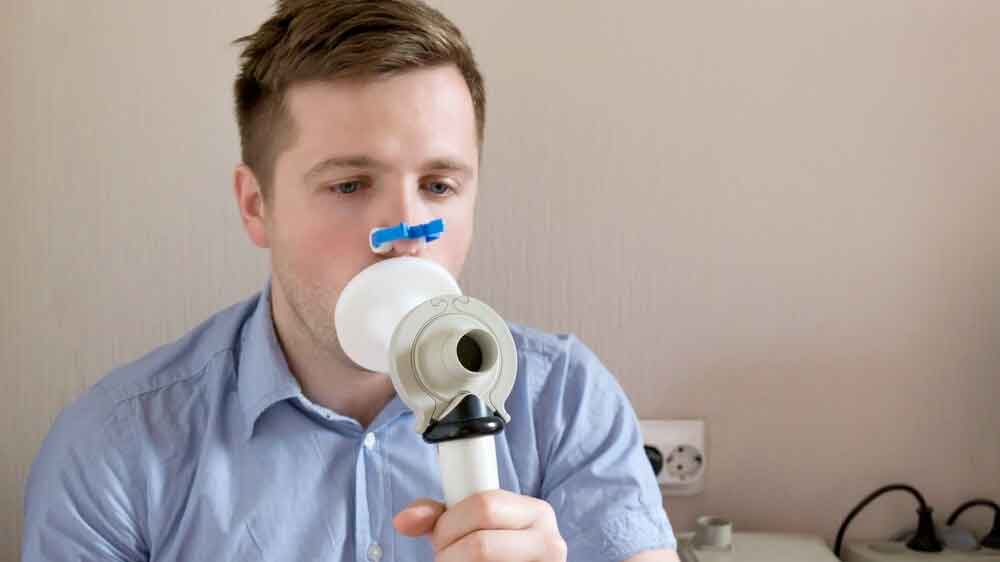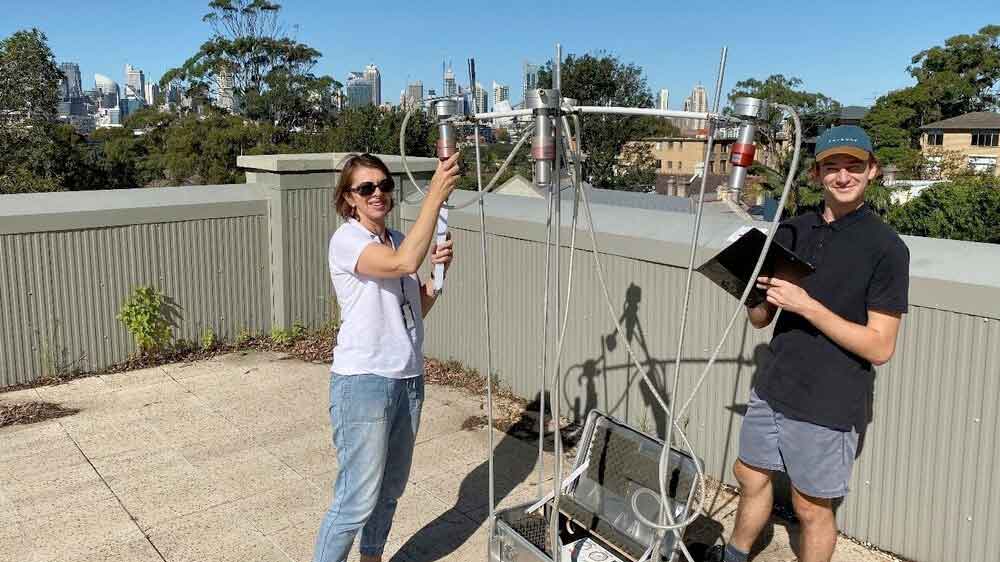The Woolcock Institute of Medical Research

Reflections on asthma – the GP
General Practitioner Joseph Doan has seen lots of changes in how asthma is treated. Here he shares with the Woolcock's Professor Sinthia Bosnic-Anticevich some impressions from twenty years of helping patients manage their asthma.
What changes have you seen over the years with asthma and your asthma patients?
There's been lots of changes. The biggest thing I've noticed is that when treating mild to moderate asthma patients nowadays, we're treating them much earlier with anti-inflammatory agents (inhaled corticosteroids), rather than intermittent treatment with bronchodilator relievers like Ventolin.
When I was training, we used to treat people episodically – 'just use your Ventolin puffers'. But that has transformed into treating people early, and treating them with anti-inflammatories with the most effective dose. There is much more of a 'prevent flare-ups' approach.
That's been a game changer. This mindset change in our practice over the last twenty years has made a really big difference, with a reduction in the use of oral corticosteroids.
To me, that's a profound change in our practice.
Treatment is more holistic now, more than just treating people when they have severe exacerbations, but now aiming to prevent those exacerbations.
Have you noticed any changes in your asthma patients?
I think that patient education for asthma has fluctuated over time. From my perspective as a GP, there has also been a shift in the extent to which we use lung function testing in our day-to-day management of asthma. We try and do as much lung function testing in the surgery as possible. However, with COVID, in the last 18 months we haven’t been doing as much of that.
There has been some shift in patients taking more ownership of their care: patients asking about monitoring their asthma and tracking their asthma-free days and things like that. It depends on each practice and their interaction with patients. I see doctors in my practice promoting the use of home monitoring with peak flow meters.
With the change in approach to asthma management, do you feel that there has been a shift in patients' attitudes to ‘steroids’?
Twenty years ago, there was absolutely a fear of steroids! A parent would hear the word 'steroids' and instinctively say 'doctor, is this safe for my child?'
Even to this day, steroids have quite a stigma attached to them. Most parents initially freak out when you suggest steroids. However, with education, patients see that the inhaled steroids we prescribe are safe, and they see their children getting better.
What have you found the most challenging in managing asthma these days?
Timing your engagement with your patient. I think that's the key.
Getting all patients to take ownership of their asthma can be a challenge. It is critical to educate and support our patients. And follow up, which takes time. If you spend the time and are interested in your patient's asthma care, more often than not your patients respond.
I don't know if you can systemise it – most GPs have the right guidelines, we know what to do. It's more about understanding that all our patients are a little bit different. It's personalising or customising.
Over time they'll become better educated and they'll come to you if they need to, rather than thinking 'I feel well, I'll stop my puffers or treatment'.
The challenge is to get patients to appreciate that they need to use their medications regularly.
I think it's a human nature thing, even outside of education. Patients tend to take their treatment when they are not well, but we need them to use their medication to prevent them from getting unwell: for some that means taking their medication even when they feel they don’t need to. But those in the episodic to mild category, they're the ones where I think the most ongoing challenge is.
What tips do you have for a person with asthma?
My biggest tip for my new asthma patients is that asthma is a chronic disease that can be serious and, though it can't be cured, it can be well managed. So regular monitoring and review is very important.
And if you follow the treatment, you ask questions about your treatment, and understand what things flare your asthma up, you're in a much better place long-term to live a fulfilling life with minimum burden from your asthma.
About Joe
Dr Joseph Doan practises in Kogarah, in Sydney's South, in a group practice with other GPs. He has a special interest in asthma management. During the COVID-19 pandemic and with more time he has taken up cycling, gardening and more walking to stay healthy.
More stories from the front line
This is the second in our series of interviews for Asthma Week 2021. See the other interviews in Reflections from the asthma front line.
Find out more
- About our asthma research
- News from our respiratory research
- We’re proud to be part of the Air Nutrition – you are what you breathe campaign for Asthma Week 2021
Support our work
The Woolcock Institute of Medical research is a not-for-profit research institute. Your tax-deductible donation to the Woolcock will help us improve the quality of life for people affected by breathing disorders like asthma.
Here are some examples of what your donation can do.












